#heat pump
Text
"Governor Janet Mills announced that Maine has, two years ahead of time, surpassed its goal of installing 100,000 new heat pumps by 2025, a milestone that represents significant progress in reducing Maine’s reliance on heating oil, lowering heating costs, and curbing harmful carbon emissions.
To continue Maine’s momentum, Governor Mills also unveiled a new target: installing another 175,000 additional heat pumps in Maine by 2027, thereby bringing the number of heat pumps installed in Maine homes, businesses, and public buildings during her time in office to 275,000.
If this target is achieved, Maine would have more than 320,000 heat pumps in total installed across the state.
Heat pumps can be thought of as temperature recycling machines. They are filled with refrigerant fluid and contain a compressor, and they work by extracting excess heat and moving it around, either in or out of a house depending on whether it’s hot or cold.
It’s believed they work best in hot weather, but in February, Maine’s temperatures in some places plummeted during a cold snap to -60°F. Efficiency Maine, which aided in the state’s adoption of heat pumps by organizing rebates for customers under the provisions of the Inflation Reduction Act, did a survey of owners they had helped the previous year.
Many of [the heat pump owners] reported they were comfortable and warm, and offered to bring up the fact that by February they had already saved hundreds of dollars on home heating systems, over boilers, gas furnaces, and heating oil.
“We are setting an example for the nation,” said Mills at the announcement event. “Our transition to heat pumps is… curbing our reliance on fossil fuels, and cutting costs for Maine families, all while making them more comfortable in their homes—a hat trick for our state.”
The transition began in 2019 with bipartisan support of the Legislature, when Governor Mills enacted laws setting ambitious targets for transitioning to renewable energy and reducing greenhouse gas emissions."
-via Good News Network, July 31, 2023
#maine#united states#us politics#heat pump#fossil fuels#carbon emissions#climate crisis#refrigerant#heating and cooling#air conditioning#heater#cold snap#good news#hope#hope posting#janet mills
3K notes
·
View notes
Photo
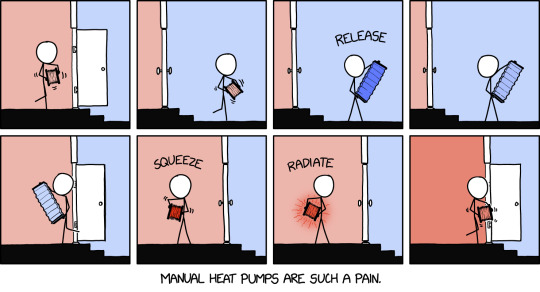
If I'm not going to upgrade to a powered one, I should at LEAST stop leaving the door open so often.
Heat Pump [Explained]
298 notes
·
View notes
Photo

Adorkable Twilight & Friends - “Choose Sides”
https://www.patreon.com/adorkabletwilightandfriends
https://twitter.com/AdorkableTwili1
http://adorkabletwilightandfriends.wikia.com
http://adorkabletwixfriends.deviantart.com
#Choose Sides#adorkable twilight#adorkable twilight & friends#adorkable#air conditioning#hvac#heat pump#hat#starlight glimmer#moondancer#twilight sparkle#blake#spike#argument#fight#pushing#spicy
94 notes
·
View notes
Text
I wonder if it would be possible to create an ultra-efficient, zero-emission, Water/Steam powered vehicle that uses a heat pump as its source of boiling instead of a burning fuel.
Because if you just use conventional heating elements, it’ll be less efficient than a pure EV due to energy type transitional losses, but heat pumps are usually about 300-400% efficient since they move heat, not create it. So I just wonder if exploiting that efficiency could be used to create a long-range, Water-Powered Hybrid vehicle that’s even more efficient than modern EVs, all while using a fraction of the battery capacity.
We could also seal off the Water/Steam engine part and use a condenser core like some of the last generation of steam cars did in the early 1900s. That way you’d never have to refill the water. Once it’s steam, it can just be cooled back down and reused. All you’d have to do is charge it like a normal EV.
#rambles#vehciles#car#cars#ev#evs#electric vehicles#electric cars#hybrid#water#steam engine#heat pump
17 notes
·
View notes
Link
Few climate technologies have ever had a moment quite like the one heat pumps are currently enjoying.
While the share of electric vehicles and induction stoves sales may be growing, they still represent a sliver of all cars and stoves sold respectively. US heat pump sales, though, surpassed those of gas furnaces last year as the tech of choice to keep homes comfortable.
The sudden rise of the heat pump may have you wondering: what actually are they, how do they work, and are there incentives that can help lower the price?
What does a heat pump do?
Calling it a “heat pump” is perhaps a bit misleading. That’s because heat pumps both heat and cool your home depending on the season. To do this, they use electricity rather than methane gas, cutting down harmful greenhouse gas emissions and public health and safety concerns.
“It sounds like magic,” said Vince Romanin, the founder of window heat pump startup Gradient. Spoiler: it’s just physics.
How do they work?
The short answer is they work by moving – pumping, if you will – heat from one place to another. It’s actually the same thing that air conditioners do: they pump heat out of your house and draw cool air in. If you’ve ever stood outside next to an air conditioner, you can feel that heat being pushed out. A heat pump can do that same task in summer, but in winter, it also has the ability to reverse the process and pull heat in from the outside into your home. Some heat pumps, called ground source heat pumps, use the ground outside a home as a place to pull or dump heat.
Are heat pumps better than gas furnaces?
In many cases, yes. They’re wildly more efficient. It’s a lot easier to move heat around rather than creating it from scratch by lighting gas on fire and then blowing the resulting heat around. Romanin noted that heat pumps are 300% more efficient than gas furnaces.
“It is ridiculous to burn a fossil fuel at thousands of degrees to heat up your apartment by 10 to 20 degrees. It’s a crime against the laws of thermodynamics,” he said.
That efficiency can translate to cost savings. An analysis by Carbon Switch found switching from a gas furnace to a heat pump would save the average US household $557 a year on its home energy bill.
Beyond efficiency, it’s also much safer to not pipe gas into your home on a regular basis due to a range of public health and safety impacts. Improperly installed or maintained ventilation systems can result in pollution being sucked up into your home. Then there’s the danger of a flammable material being transported to and ignited in your basement.
We haven’t even gotten to the climate benefits yet. A study released last year found that replacing gas furnaces with heat pumps in every US home could cut carbon emissions by up to 53%. Meanwhile, the Carbon Switch analysis found home emissions would drop by 142m metric tons.
Do heat pumps work in cold weather?
Yes. Mostly.
The conventional wisdom has been that air source heat pumps don’t work well in cold weather, because it’s hard to extract heat from extremely cold air. Some systems also use energy-intensive forms of heating to prevent their icing up, cutting into efficiency gains. Ground source heat pumps have an easier time since the ground temperature remains fairly constant.
But “it’s astonishing what manufacturers, what universities have been able to do”, said Subhrajit Chakraborty, an R&D engineer at the University of California, Davis’s Western Cooling Efficiency Center.
Air source heat pumps have gotten much more efficient at capturing heat even when it’s sub-zero outside. This year, Energy Star, a US government program promoting energy-efficient appliances, launched a cold-climate rating for heat pumps. A database kept by the non-profit Northeast Energy Efficiency Partnerships shows there are more than 1,400 models that fit the bill.
Real-world tests in cold climates from Maine to Minnesota show that heat pumps can operate in some of the harshest winter conditions out there.
OK, and how much do they cost?
They aren’t overly cheap. In the US, installing a heat pump is a four- or possibly five-figure investment depending on the size of the house, climate and other factors. Air source heat pumps are generally cheaper than ground source ones, though Chakraborty said the efficiency gains of a ground source heat pump may make it more cost-effective over a 15-year or longer timescale.
Are there incentives to help me afford one?
There are. In the US, the Inflation Reduction Act includes tax credits that cover 30% of the cost of a heat pump up to $2,000 (about £1,700). For households with under 80% of the median area income, the law is even more generous. It will cover 100% of the upfront costs of buying and installing a heat pump up to $8,000 (about £6,700). Many states also offer rebates. Stacked together, these benefits could help make heat pumps accessible to everyone rather than just the well-off, who have traditionally bought them.
In the UK, the government offers homeowners up to £6,000 ($7,150) to cover installing a heat pump. The urgency to install more heat pumps has increased in the wake of the Ukraine war, yet a third of the £6.6bn ($7.8bn) put forward by the government for efficiency upgrades remains unspent as of last month.
Some Australian states as well as the federal government offer incentives for heat pump hot water heaters, a related type of technology that warms up water instead of space.
What stands in the way of installing a heat pump in every home?
For one, not everyone lives in a freestanding home. Apartment dwellers have had few options. Gradient and a growing number of HVAC companies in the US are looking to change that, though, by offering window heat pumps.
The Gradient model is a sleek-looking unit that sits like a saddle over your window sill and requires no professional installation. It works in more temperate climates, though Romanin said a cold-climate model is on the way. But the company, along with Midea America, are set to do a pilot in New York public housing starting this year that will install window heat pumps that can operate in colder temperatures as part of a $70m HVAC upgrade program.
Installing a heat pump and electrifying other appliances also might require homeowners to update their electrical panels, which can add another $1,300 to $3,000 to any project. (In the US, the IRA does include a $600 tax credit for those upgrades when done in conjunction with other electrification upgrades.)
What comes next for the humble heat pump?
Chakraborty’s group is working on a multifunction heat pump that can be used for space and hot water heating.
Romanin said new forms of heat-pump refrigerant are also making their way to the market. HFCs, currently some of the most common refrigerants, are also extremely potent greenhouse gases. They became widespread because they replaced CFCs, refrigerants that damaged the ozone layer. HFCs are now on their way out, but Romanin said “if we don’t focus on what we’re replacing them with, we could repeat this same mistake”.
Gradient uses a relatively low-impact HFC called R32. But he said “this is a stepping stone refrigerant for us”, and that the company is seeking even better options.
29 notes
·
View notes
Text
Highly Efficient Heat Pump By Inter Solar Systems

Heat Pumps are an effective and reliable option in severe climatic conditions to keep yourself and family comfortable with changing temperature and environment around you. Inter Solar System provides best heat pump systems for your domestic needs and daily comfort.
#heat pump systems#heat pumps#heat pump#heat pump service#residential heat pumps#inter solar systems
3 notes
·
View notes
Text
The Importance of Heating And Cooling Solutions: Making Sure Comfort as well as Effectiveness in Every House
HVAC (Home Heating, Ventilation, as well as Cooling) systems have become a crucial part of our every day lives, supplying us with the convenience and comfort we need in our houses. These systems play an important function in keeping a comfy indoor temperature, making certain proper air flow, and enhancing air top quality. With severe climate condition ending up being extra usual, it is very important to understand the value of a/c systems and also how they add to our general wellness.
Paragraph 2: Among the essential advantages of heating and cooling systems is their capacity to regulate interior temperature levels, giving heat throughout chilly winters months as well as amazing relief throughout scorching summer seasons. This not just develops a comfortable living environment but likewise aids avoid health problems created by extreme temperatures. Additionally, a/c systems make sure proper air flow by distributing fresh air throughout your house, reducing the danger of airborne impurities and improving interior air top quality. By removing dirt, allergens, and also pollutants, these systems play an essential function in keeping a healthy home for people with respiratory system problems or allergic reactions. Additionally, heating and cooling systems boost energy performance by successfully taking care of the usage of electrical energy, leading to reduced utility expenses and lowered carbon footprint.In final thought
, heating and cooling systems are greater than just a luxury; they are a necessity in today's modern-day residences. From keeping a comfy temperature level to advertising much better air top quality, these systems significantly add to our general health. Whether it's chilling wintertimes or scorching summers, cooling and heating systems make certain that our residences are a sanctuary of convenience and also effectiveness throughout the year.
Read more here https://morehartac.com/
2 notes
·
View notes
Text
Winter is cold so keep your water warm. save some money with a new heat pump.
Here to help
3 notes
·
View notes
Text
youtube
One year after Russia invaded Ukraine, analysts think Putin's aggression may have sped up Europe's energy transition. How's that?
Credits:
Reporter: Ajit Niranjan
Video Editor: Nils Reinecke
Supervising editor: Michael Trobridge, Malte Rohwer-Kahlmann
We're destroying our environment at an alarming rate. But it doesn't need to be this way. Our new channel Planet A explores the shift towards an eco-friendly world — and challenges our ideas about what dealing with climate change means. We look at the big and the small: What we can do and how the system needs to change. Every Friday we'll take a truly global look at how to get us out of this mess.
#PlanetA #UkraineWar #EnergyCrisis
Read more:
European Commission data on imports of Russian fuel:
https://ec.europa.eu/eurostat/statist...
The International Energy Agency's 10-point plan to cut demand for Russian gas: https://iea.blob.core.windows.net/ass...
The IEA's guide to avoid gas shortages in 2023:
https://www.iea.org/reports/how-to-av...
EMBER's review of European electricity:
https://ember-climate.org/insights/re...
The IEEFA's analysis of European LNG:
https://ieefa.org/articles/over-half-...
Chapters:
00:00 Intro
00:50 Eggs & baskets
02:20 Back to coal?
04:27 Renewables push
05:38 Humble heat pumps
07:23 Use less?
09:15 Future
10:47 Conclusion
#dw planet a#solarpunk#Europe#Russia#ukraine#ukraine war#Putin#green energy#clean energy#renewable energy#fossil fuels#coal#oil#heat pump#Youtube
2 notes
·
View notes
Text
Make the Most of Your Pool with a High-Performance Heat Pump
Pool heat pumps are worth it if you want to extend your swimming season, enjoy a more comfortable water temperature, and save money on energy costs compared to traditional heating methods. While the initial cost of a heat pump may be higher, they are more energy-efficient and require less maintenance, making them a cost-effective long-term investment for any pool owner. Additionally, pool heat pumps are eco-friendly and use renewable energy sources, making them a more sustainable option for heating your pool.
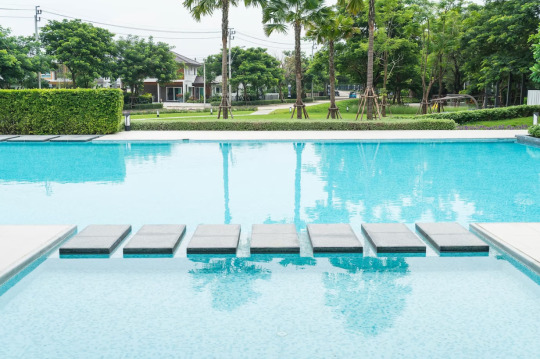
3 notes
·
View notes
Text
"Heat stored underground in caverns can be set aside in Finland’s summer months to be re-used during frigid winters thanks to a state-of-the-art ‘seasonal energy’ storage facility.
Slated for construction this summer near Helsinki, it will be the largest in the world by all standards and contain enough thermal energy to heat a medium-sized city all winter.
Thermal exchange heating systems, like those built underground, or domestic heat pumps, are seen as the most effective way available of reducing the climate-impact of home heating and cooling.
Their function relies on natural forces or energy recycling to cool down or heat up water and then using it to radiate hot or cold energy into a dwelling.
In Vantaa, Finland’s fourth largest city neighboring the capital of Helsinki, the ambitious Varanto seasonal energy storage project plans to store cheap and environmental friendly waste heat from datacenters, cooling processes, and waste-to-energy assets in underground caverns where it can be used to heat buildings via the district heating network whenever it is needed.
In Finland and other Nordic countries, the heat consumption varies significantly between seasons. Heat consumption in the summertime is only about one-tenth of the peak load consumption during the cold winter months.
Varanto will utilize underground caverns equal in space to two Maddison Square Gardens—over a million cubic meters—filled with water heated by this waste heat and pressure that will allow the water to reach temperatures of up to 300 degrees Fahrenheit without the water boiling or evaporating.
youtube
“The world is undergoing a huge energy transition. Wind and solar power have become vital technologies in the transition from fossil fuels to clean energy,” says Vantaa Energy CEO Jukka Toivonen.
“The biggest challenge of the energy transition so far has been the inability to store these intermittent forms of energy for later use. Unfortunately, small-scale storage solutions, such as batteries or accumulators, are not sufficient; large, industrial-scale storage solutions are needed. Varanto is an excellent example of this, and we are happy to set an example for the rest of the world.” ...
“Two 60-MW electric boilers will be built in conjunction with Varanto,” adds Toivonen. “These boilers will be used to produce heat from renewable electricity when electricity is abundant and cheap. Our heat-producing system will work like a hybrid car: alternating between electricity and other forms of production, depending on what is most advantageous and efficient at the time.”
... Construction of the storage facility’s entrance is expected to start in summer 2024, while it could be operational as early as 2028."
-via Good News Network, April 12, 2024. Video via VantaanEnergia, March 10, 2024
#solarpunk#heat pump#renewable energy#heating#finland#energy transition#climate change#climate hope#good news#hope#helsinki#clean energy#Youtube
366 notes
·
View notes
Text
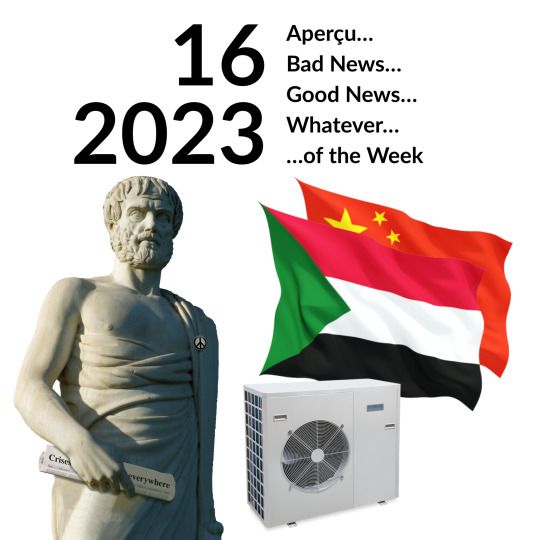
2023 / 16
Aperçu of the Week:
"With so many things coming back in style, I can't wait until morals, respect and intelligence become a trend again."
(Denzel Washington, US-American actor)
Bad News of the Week:
In recent days, the spotlight has shifted to a country that should have done so sooner because of its problems: Sudan. For 30 years, the autocrat Umar al-Bashir, who came to power in a military coup in 1989, led (not to say suppressed) Sudan with a hard hand, it is an unfortunately classic state story in Africa. Since South Sudan's independence in 2011 at the latest, the country, wracked by regional separatist movements, has no longer been a functioning state. After al-Bashir was deposed - by a military coup, of course - the military leadership and the opposition agreed on a transitional government that was supposed to democratize the country and prepare it for free elections. What didn't happen.
Now two factions of the military are fighting each other for power: the Sudan Armed Forces (SAF) under de facto head of state General Abdel Fattah Burhan and the paramilitary Rapid Support Forces (RSF) under his former deputy General Mohammed Hamdan Daglo, better known as Hemeti. Both lead the so-called Sovereign Council, which is effectively a military junta. Fighting began when RSF troops took control of the Soba military base south of the main city of Khartoum a week ago. Since then, there has been fighting over strategic locations such as the international airport and the headquarters of state television, and there have been constant explosions and confrontations throughout the city, which have reportedly already claimed the lives of some 500 civilians.
The population is largely holed up in their homes. Without supplies of food or medicine, and often with outages of electricity and water, the suffering of the people is unimaginable. Foreign countries call for a ceasefire and evacuate their diplomatic personnel and some of their nationals. That's it. There is no real leverage, and military intervention is unlikely, given the increasing withdrawal from comparable conflict areas in recent years, such as Mali. Is there any reason for hope? I fear not.
In the future, Sudan will vegetate as a failed state just like Libya or Iraq. Only this time, probably without an ultimately useless intervention by the West. It will be interesting to see whether China, which has been present in the south since the 1970s and is a kind of godfather to South Sudan, will intervene again. This is supported by the fact that China is increasingly buying influence on the African continent if, for example, there are rich mineral resources, as in this case. The fact that they have never intervened militarily, which would probably be indispensable in this case, speaks against it. In any case, it will end badly for the population. Whether with or without China, there will be no human rights, prosperity, democracy, welfare state, domestic peace, education for all, and so on.
Good News of the Week:
What a lot of ranting there is about government and its reluctance to take effective action against, or at least mitigate, the effects of climate change. The four biggest areas where change is needed are industry, energy, transportation and construction/housing. Industry is already on a solid path and reached the set targets - albeit with the help of pandemic-related production reductions - in 2022. In energy (generation), at least something is happening, although too little. There is hardly anything to be seen in the area of transportation, which is not surprising in view of the car lobby, the traditionally conservative ministry and various taboo topics such as a speed limit.
Let's move on to construction and housing. The first part is partly industrial, for example the production of building materials, and partly private, i.e. dependent on the owners - for example the decision to install thermal windows. In addition to private energy consumption, which can also be covered (in part) by photovoltaic systems on the roof, the dominant issue is heating. The majority of German heating systems are still powered by oil or gas. Which, in addition to the dependencies for which we are now all paying bitterly, is above all extremely harmful to the environment. As is always the case when a fossil fuel is burned.
So a paradigm shift is needed here. For example, by replacing a gas boiler with a heat pump. This is currently regarded as the ideal solution because, apart from the operating electricity, which can come from renewable energy sources, it only needs to convert thermal energy. A bit like a refrigerator, but in the opposite direction. The problem is that high peak temperatures are not reached, usually at 40 degrees Celsius is the end. In well-insulated houses that have large radiating surfaces such as underfloor heating, this is sufficient. In poorly insulated houses, where a classic radiator is usually also placed on a thinner wall of all places under an old window, this is often not enough.
Last week, an amendment to the Building Energy Act was now presented by the green-led Ministry of Economics and approved by the cabinet. The key point: as early as next year, all newly installed heating systems must be powered by at least 65 percent renewable energy. This effectively means the death of all oil and gas heating systems, with the latter having a shaky future with hydrogen - which, however, is not yet available at the moment and will be very expensive later on. This leaves electric heating. And the mentioned heat pump, which is more expensive than, say, a gas boiler, combined with cost-intensive building renovations required because of the radiation surfaces and insulation.
This is hitting the population at precisely the time when new construction financing and, above all, rental cost levels are going through the roof anyway. Particularly in areas that are in demand and characterized by an influx of people, such as here in the Munich area, housing is slowly becoming a luxury that often already eats up more than half of the income. For this reason, the state offers subsidies of between 30 and 50 percent for the replacement of fossil-fuelled heating systems. Regardless of whether this is voluntary and proactive or forced because the old system is simply no longer repairable or maintainable. There are also subsidies or at least low-interest loans with repayment subsidies for the accompanying renovation.
The good thing about this is not only that climate-friendly measures and only climate-friendly measures are finally being subsidized. When it comes to mobility, for example, driving a car is still treated in exactly the same way as taking the train. The ambitious timetable is also good. As I said, the law will take effect as early as next year and is not, as is so often the case, just some lax target agreement by the end of the decade. Yes, this will be problematic, as there are likely to be bottlenecks in both heat pump manufacturing and their professional installation. But that doesn't have to matter. Otherwise, we'll end up in an infinite loop like with electromobility: vehicle sales stall because there's a lack of charging capacity. And these are not being created because demand is too low, since not enough e-cars are being bought. Those who only invoke the dilemma of a Catch 22 situation will never get off the ground.
Personal happy moment of the week:
At work, I was able to successfully coordinate that I will have a week off in about two months. After that never worked out last time, because I stayed at home - too close to the home office - this time we will go on a trip. Namely to the "The sea of stone" in the Austrian Alps. Where there is no digital accessibility at our mountain inn. Smart move. Actually, I could have thought of that earlier.
I couldn't care less...
...that Michael Kretschmer from Saxony is now the first German prime minister to call for a stop to the immigration of refugees. Even for former local staff from Afghanistan. Not everyone has yet understood that our society needs immigration to maintain its prosperity. Especially against the backdrop of aging and a shortage of employees, especially in less demanding fields of activity. The real problem, after all, is the lack of integration and qualification. Both are not only a debt to be collected, but also a debt to be brought.
As I write this...
...Ramadan is coming to an end. For the first time this year I have seen it with different eyes. Thanks to my new work colleague Tarek. A Syrian. And Muslim. That reminds me that I have a Koran - fortunately in an annotated version for amateurs - on my bookshelf. Which I will (hopefully soon) read. Because just like the Bible, it is far more than just a religious pamphlet. It defines the cultural basis of whole nations. And this foundation should be known. And respected. Especially to enable one to evaluate dubious spin-offs by oneself.
Post Scriptum
Last week, former German Chancellor Angela Merkel received a medal. The "Grand Cross in Special Execution." As the third bearer after her predecessors in office Konrad Adenauer and Helmut Kohl. Of course, there was not only praise in this context, but also criticism. Both justified. In her 16 years in office, she "outlasted" 13 party leaders of the Social Democrats, the primary political competitor of her conservative party, the CDU.
So I'll take the liberty of quoting the current incumbent, Saskia Esken: "Her opponents - from her own ranks as well as from outside - cut their teeth on her integrity and her fine sense of humor." Merkel's "diplomatic skills and empathic wisdom, with which she repeatedly succeeded in forging viable coalitions and compromises on both the national and international stage," she said, deserved special praise. Because: "Especially in our troubled and crisis-ridden times, an almost invaluable skill." Merkel, she said, had therefore "navigated Germany with a sense of proportion through the many crises of her time in office."
#thoughts#aperçu#good news#bad news#news of the week#happy moments#politics#denzel washington#trending#Sudan#failed state#africa#south sudan#china#climate change#fossil fuels#heating#mobility#housing#heat pump#holiday#refugees#immigration#ramadan#koran#angela merkel#austrian alps#catch 22#gas#military coup
2 notes
·
View notes
Text
Hunt Commercial
Since 1982, Hunt Heating Commercial has provided the Australian commercial market with hydronic heating and cooling solutions. Collaborating with Australia’s leading property developers and mechanical engineers from system design all the way through to product fulfilment.
Taking a collaborative approach with every project, designing complete heating systems for large-scale accommodation projects, office buildings, and smaller commercial shop spaces. Hunt Heating Commercial has everything you need from design support and advice on hydronic heating systems.
Hunt Commercial
11 Fiveways Boulevarde, Keysborough, VIC 3173 Australia
1300 001 800
https://huntcommercial.com.au
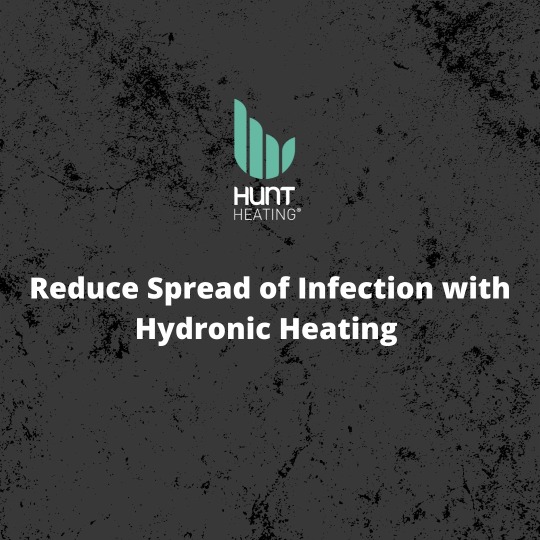


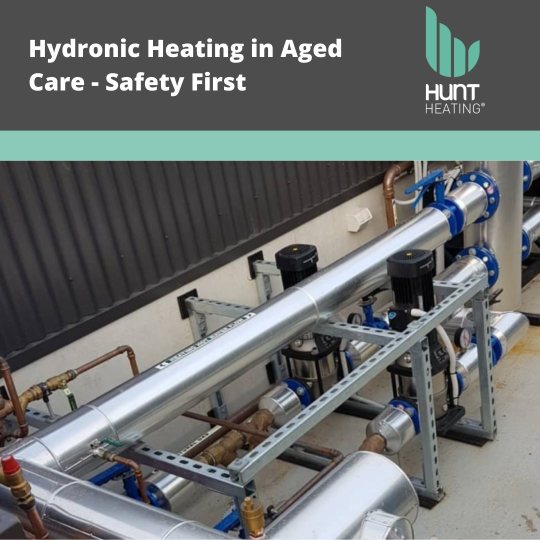
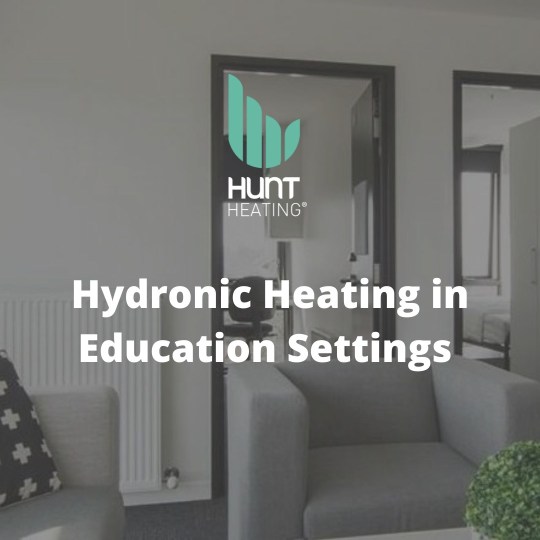


2 notes
·
View notes
Video
youtube
How [war criminal] Putin made Europe go green faster
DW Planet A
One year after Russia invaded Ukraine, analysts think Putin's aggression may have sped up Europe's energy transition. How's that?
#Europe#russian invasion#russian defeat#russian imperialism#russian blackmail#expensive fossil fuel#fossil fuel imports#energy safety#energy independence#renewable energy#solar power#wind power#heat pump#Poland#France#Germany#russian losses#demise of big oil#electric car
3 notes
·
View notes
Video
gradient heat pump
14 notes
·
View notes